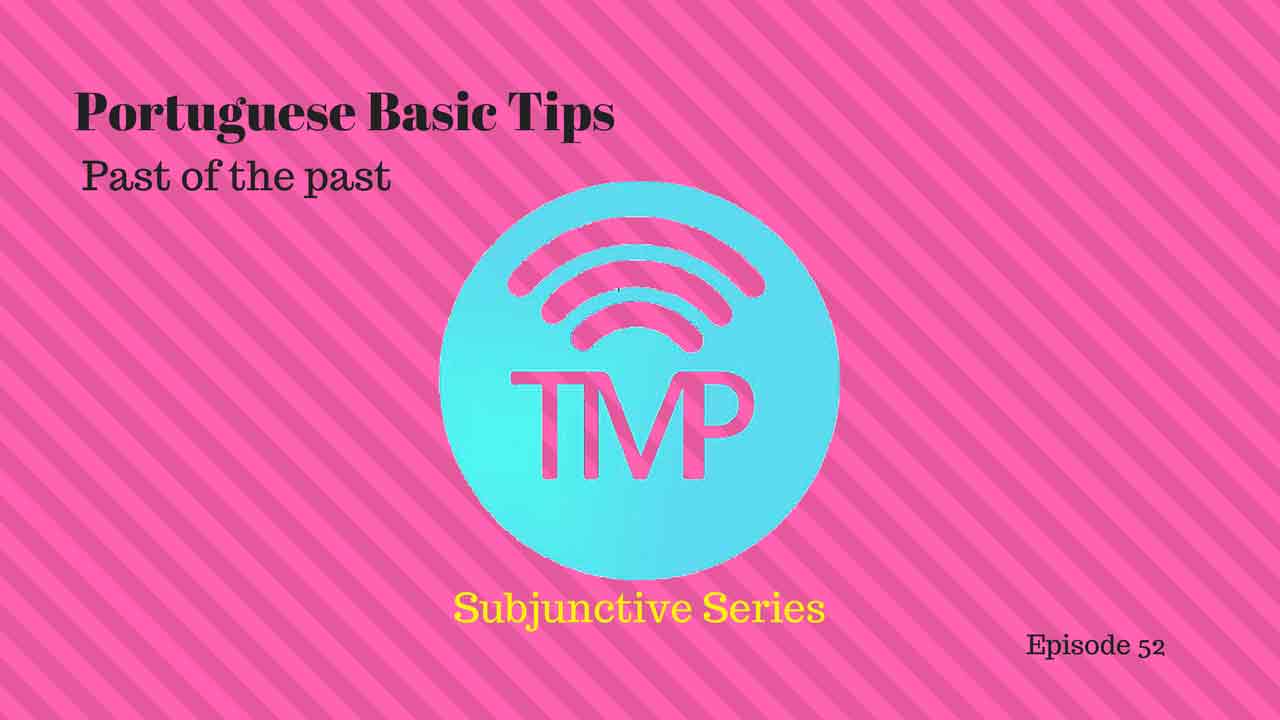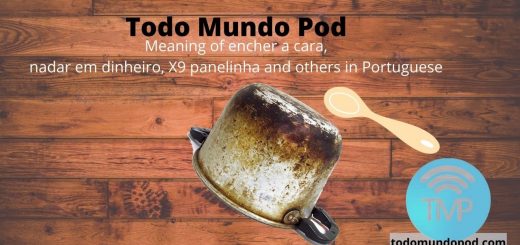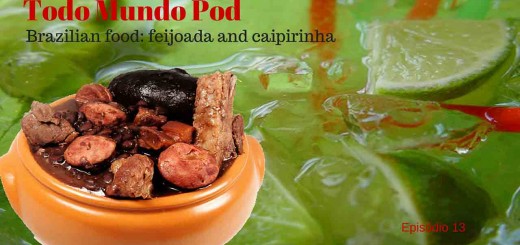Portuguese subjunctive: Portuguese past of the past

Portuguese past of the past
Hello there and welcome to our Portuguese Basic Tips 52 (in English) called Portuguese past of the past
On today’s episode we are going to speak about what here in Brazil we call “pretérito mais-que-perfeito composto do subjuntivo”. This is something that, somehow, indicates a fact that happened before another past fact. This is why a said it is “the past of the past”, because this is a kind of verb tense that happens previously with respect to another past tense.
Click on the link to visit our first episode about this subjuntive series called Portuguese present subjunctive tense
Here you’ll find the second episode of the series: Portuguese past subjunctive tense
Visit the episode about Portuguese future subjunctive tense
Forth episode of this series: Portuguese past compound subjunctive tense
Let’s take an example in order to simplify it:
- Se eu tivesse estudado, eu teria aprendido (If I had studied, I would have learned)
Note that here we have two situations: studying and learning. However, those situations didn’t happen at the same time. First I “should have studied” and then I “would have learned” something. This “first past”, in this case “tivesse estudado” is what we call “pretérito-mais-que-perfeito composto do subjuntivo”.
Both sentences are in the past, but there is one that necessarily came first. You can’t learn something without first having studied, can you?!
Another example:
- Ela teria saído com você, se tivesse chegado a tempo (She would have dated you if she had arrived on time).
Note that here first “she was late” and because of that she couldn’t date him.
Past of the past is used when we join the verb “ter” or “haver” (to have) in the Portuguese imperfect past tense and the particípio of the other verb.
For instance: tivesse feito, tivesse estudado; houvesse feito, houvesse estudado.
Let’s repeat the conjugations using the verbs “ter” and “haver”, so you can get used to it.
Let’s practice a little bit. Repeat with me
Pretérito mais-que-perfeito composto do subjuntivo (Ter)
| Estudar (To study) | Pretérito mais-que-perfeito compost subjuntivo |
| (Se) eu tivesse | Estudado |
| (Se) tu tivesses | Estudado |
| (Se ) ele tivesse | Estudado |
| (Se) nós tivéssemos | Estudado |
| (Se) vós tivésseis | Estudado |
| (Se) eles tivessem | Estudado |
Sentir verb Pretérito mais-que-perfeito composto do subjuntivo (haver)
| Sentir (to feel) | Portuguese past compound subjunctive tense |
| (Se) eu houvesse | Sentido |
| (Se) tu houvesses | Sentido |
| (Se) ele houvesse | Sentido |
| (Se) nós houvéssemos | Sentido |
| (Se) vós houvésseis | Sentido |
| (Se) eles houvessem | Sentido |
Become a Premium Member to download all our transcripts
Click here to visit a website containing the conjugation of Pretérito mais-que-perfeito composto do subjuntivo in Portuguese
That’s enough for today! Don’t forget to share this podcast with all your friends and family who want to study Portuguese. It will help us a lot.
See you next time!
Thanks!
Marcos Sales
Podcast (portuguesebasictips): Play in new window | Download







Recent Comments